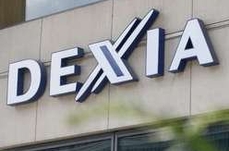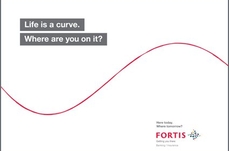Brandhome always keeps a close watch on hypes, trends and crises. We’ve got our finger firmly placed on the pulse of current society. We keep our eyes open, sometimes bemused and wondering and sometimes with a more critical viewpoint. In this edition of BLA, we investigate the relationship Belgians have with their banks. We wondered if they still trust their bank brands and government, after the two played a game of bank domino above their heads. As usual, we present to you our findings with the odd quip or two. (Side note: the survey was taken before the demise of the first Leterme government)
Belgians and their monetary ménage à trois
To safeguard their money, almost all Belgians choose to engage in a ménage a trois. More than 60% of Belgians allowed two different banks to take care of their money. BNP Paribas Fortis and Belfius are the most popular: together they ‘service’ almost half of all Belgians. Also, the combined use of these two main banks is the most coveted one.
36% of Belgians only go to one bank. Both women and Walloons dislike getting into a ménage à trois. One in five Belgians are customers with more than two banks. People from Limburg, Antwerp and Walloon Brabant are the ones involved in the most bank relationships.
Bank relationships after the crisis
Belgians stay faithful to their banks, even after the bank crisis. Most people (62%) stick with their main banks, Belfius and Fortis. Wouldn’t it make more sense if Belgians would divide their money amongst other banks? The only reason Belgians stay true to their banks is because they believe the situation is equally ‘dangerous’ at the other banking brands. Despite the “domestic violence”, they don’t go looking for a better partner because they believe there’s no better alternative.
For 35% of Belgians, faith in bank brands has dropped drastically. Especially clients of BNP Paribas Fortis (53%) and Belfius (35%), the two banks hit by the crisis, have had a crisis of faith. The breach of trust was deepest with the French-speaking community (39%) and with men (37%). Also, the older the Belgian, the lower the faith they have in banks.
In short: the heartache is worst with older Walloon men. The banks’ game of dominoes has made less of an impact with young women. Perhaps they’re used to seeing slightly unpleasant bank statements after a day of shopping?
Widespread ad campaigns like the ones by BNP Paribas Fortis don’t have any positive effects. Belgians tend to see them as an attempt to cover up something shady. Would you trust your partner trying to make up for an indiscretion with a big show and dance (flowers, champagne, sweet nothings whispered in your ear)?
Bad friends
So Belgians may have lost faith in their banks, but the damage is limited, against all odds. They turn a blind eye to their bank brands: everyone’s human, right? The blame is mainly placed with the influence of ‘bad friends’.
Big shot managers are presented as the biggest bad guys in this survey. 93% of all respondents blamed top management. 47% believe a takeover would lower the faith in the bank. Their trusted bank would only end up in the claws of some ‘bad friend’. 93% also believe top managers make too much money, and 83% say that they shouldn’t be granted severance pays. You don’t reward bad friends for their shenanigans, do you?
Contradictory political consequences
Almost half of Belgians have lost their faith in politics. Especially Didier Reynders, the federal government and Yves Leterme have lost their credibility. One in three Belgians don’t agree with the sale of Fortis to BNP Paribas.
Even though 21% believe the Leterme government didn’t do a good job handling the bank crisis, Belgians still look to their government for support and security. Government guarantees increase trust in banks with 61% and 35% of people feel safer when the government injects money into the economy. In short, Belgians have a bit of a love-hate relationship with the government.
Belgians and their banks, it’s a never-ending story!













